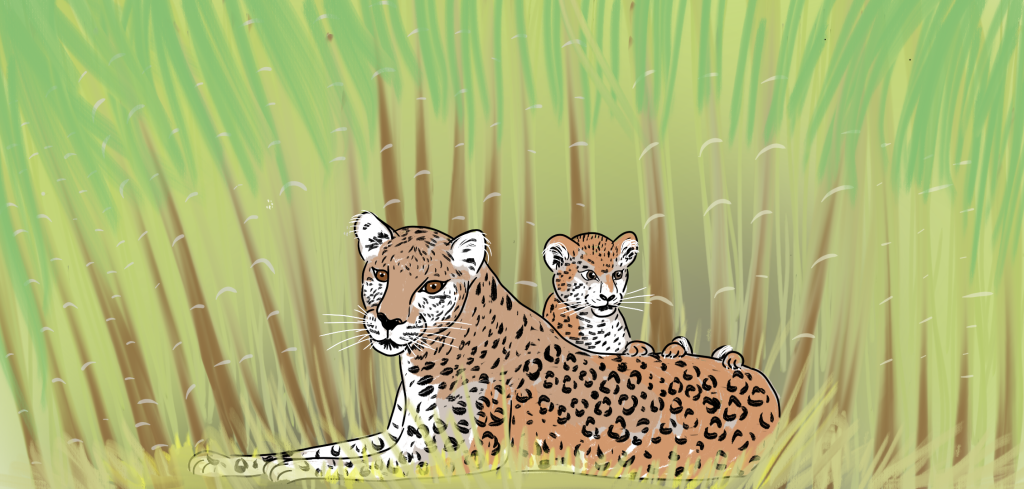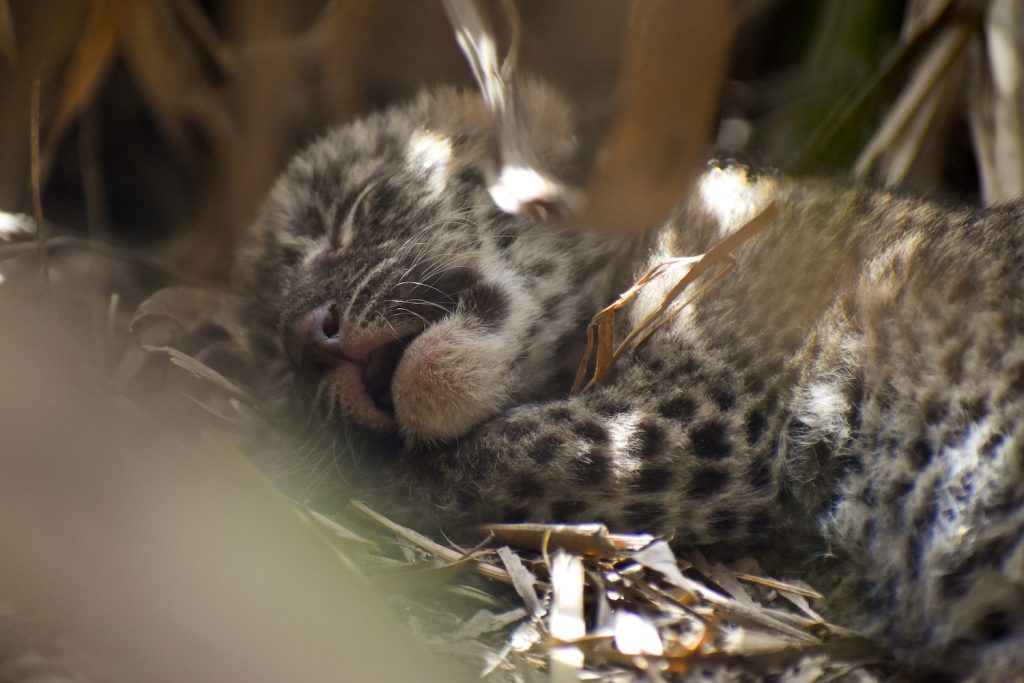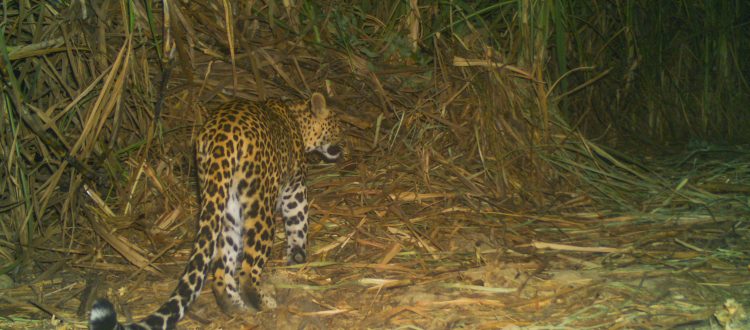The story of a refugee mother
Last year, in the month of November 2023, the team at the Terai Tiger Project field station in Katarniaghat, Uttar Pradesh received news about a leopard attack on two girls in the crop fields in the Nanpara Range. The team, being well aware of such situations and the necessary protocols, swiftly packed their equipment and headed towards the site.
The initially sunny afternoon sky turned dark as rain clouds gradually covered the skies on our way. Forced to return to the field station due to heavy downpour, we eventually reached the following morning. The forest department had placed a trap cage the previous night in an effort to capture the conflict leopard, but it escaped after killing the bait. The camera trap installed in the area also confirmed the animal’s presence.
As it turned out, a female leopard had recently been sighted in the area, frequently moving along sugarcane fields. Based on reports from the villagers and forest officers, we confirmed that all the conflict incidents had occurred in the middle of the sugarcane fields, mostly while people were in a crouching position.
What puzzled me was the motive behind her attacks on people in sugarcane fields. Over the next 15 days, my team and I closely monitored the case, diligently working to put the pieces together. Meanwhile, another incident was reported where a woman was mauled by a leopard during the day while she was cutting grass in a sugarcane field. Unfortunately, she succumbed to the injuries.

Leopard and cub illustration by Pranjali Bhujbal
This led us to ponder: were these attacks a result of the mother leopard’s defensive behaviour to protect her cubs? As forest lands are gradually replaced by agricultural fields, leopards have learned to adapt to their modified surroundings. The tall, dense sugarcane fields provide suitable shelter and safe cover, serving as a common space for these big cats to raise their cubs. However, this also gives rise to human-leopard conflict situations.
A female leopard, likely seeking sanctuary for her cubs from other predators, had sought refuge in the sugarcane fields after venturing out of the forests. Consequently, the presence of any human posed a perceived threat to the safety of the animal and her offspring.
This situation indeed prompts a reassessment of our approaches. The reflexive response of capturing any big cat spotted in the fields, often overlooking the context of a mother protecting her young, warrants reconsideration. How long can capturing conflict animals remain the default mitigation strategy is a pressing question.

Sugarcane farmers often stumble upon leopard cubs in their fields | Photo by Aman Bhatia
WTI has been actively addressing this issue and believes that not all animals that cause conflict are supposed to be captured. We believe in the concept of ‘Safe Passage’, which the Rapid Response Team (RRT) has been focussing on. Engaging with forest staff, villagers, and stakeholders, we emphasise the reality of coexistence between humans and animals in shared habitats. It’s imperative for us to be more vigilant and considerate in such scenarios.
We also met with the village elders to discuss the challenges faced by the female leopard as she sought refuge in their sugarcane fields to protect her cubs. Their willingness to cooperate highlights a shared sense of connection to the story of this ‘mother’.
As I held the last piece of the puzzle, I realised that this was not the ending of the story but rather a beginning. It’s a story of a refugee mother, navigating a landscape where the struggle for survival intersects with human expansion. It’s a story that calls for our empathy and collective efforts to find solutions that benefit both humans and wildlife.









